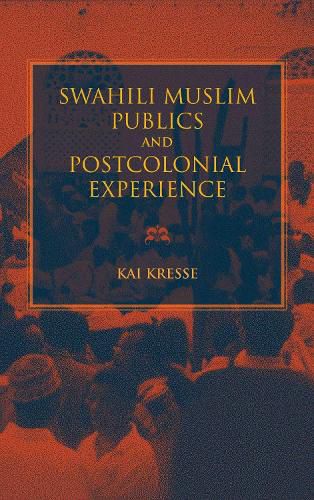Readings Newsletter
Become a Readings Member to make your shopping experience even easier.
Sign in or sign up for free!
You’re not far away from qualifying for FREE standard shipping within Australia
You’ve qualified for FREE standard shipping within Australia
The cart is loading…






Swahili Muslim Publics and Postcolonial Experience is an exploration of the ideas and public discussions that have shaped and defined the experience of Kenyan coastal Muslims. Focusing on Kenyan postcolonial history, Kai Kresse isolates the ideas that coastal Muslims have used to separate themselves from their upcountry Christian countrymen. Kresse looks back to key moments and key texts-pamphlets, newspapers, lectures, speeches, radio discussions-as a way to map out the postcolonial experience and how it is negotiated in the coastal Muslim community. On one level, this is a historical ethnography of how and why the content of public discussion matters so much to communities at particular points in time. Kresse shows how intellectual practices can lead to a regional understanding of the world and society. On another level, this ethnography of the postcolonial experience also reveals dimensions of intellectual practice in religious communities and thus provides an alternative model that offers a non-Western way to understand regional conceptual frameworks and intellectual practice.
$9.00 standard shipping within Australia
FREE standard shipping within Australia for orders over $100.00
Express & International shipping calculated at checkout
Swahili Muslim Publics and Postcolonial Experience is an exploration of the ideas and public discussions that have shaped and defined the experience of Kenyan coastal Muslims. Focusing on Kenyan postcolonial history, Kai Kresse isolates the ideas that coastal Muslims have used to separate themselves from their upcountry Christian countrymen. Kresse looks back to key moments and key texts-pamphlets, newspapers, lectures, speeches, radio discussions-as a way to map out the postcolonial experience and how it is negotiated in the coastal Muslim community. On one level, this is a historical ethnography of how and why the content of public discussion matters so much to communities at particular points in time. Kresse shows how intellectual practices can lead to a regional understanding of the world and society. On another level, this ethnography of the postcolonial experience also reveals dimensions of intellectual practice in religious communities and thus provides an alternative model that offers a non-Western way to understand regional conceptual frameworks and intellectual practice.